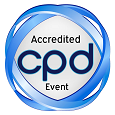
Shashi Agarwal
Center for Contemporary and Complementary Cardiology, USA
Title: Herbal cardioceuticals
Biography
Biography: Shashi Agarwal
Abstract
Introduction: Cardiovascular diseases are the number one cause of morbidity and mortality in the world. Traditional herbal concoctiosns and herb derived drugs are commonly used in these ailments. These three abstracts review popular herbal remedies which have demonstrated beneficial cardiovascular effects and results have been validated by rigorous scientific studies.rnrnMethods: PubMed interrogation revealed 65,034 entries under ‘herbal medicines’ and 2,963 under ‘herbal and cardiovascular’. Relevant citations were reviewed. Other pertinent published scientific material was also consulted.rnrnResults: Aesculus hippocastanum (Horse Chestnut): The seed extract standardized to around 20 percent aescin is often used for its anti-inflammatory and free radical scavenging properties. Its primary use, however, has been as an efficacious and safe short-term treatment for chronic venous insufficiency. Although the mechanisms are still not well understood, venous contraction appears to be mediated through 5-HT (2A) receptors. Allium sativum (Garlic): Properties of garlic (allicin) include reduction in blood pressure, inhibition of platelet aggregation, enhancement of fibrinolytic activity, reduction of lipid synthesis and protection of the elastic properties of major arteries. It also stimulates nitric oxide generation and reduces inflammation. Clinically, there is an improvement in unstable angina, peripheral artery disease and coronary calcification progression. Crataegus (Hawthorn): Several clinical trials have indicated significant benefits in its adjunctive role in the treatment for chronic heart failure. Mechanisms include catecholamine contraction and endothelial-dependent nitrous oxide induction related vaso-relaxation.rnrnConclusions: Several herbal medicines have convincingly established their therapeutic role as cardioceuticals. Evidence based scrutiny has repeatedly validated their efficacy and safety in clinical trials.rn

